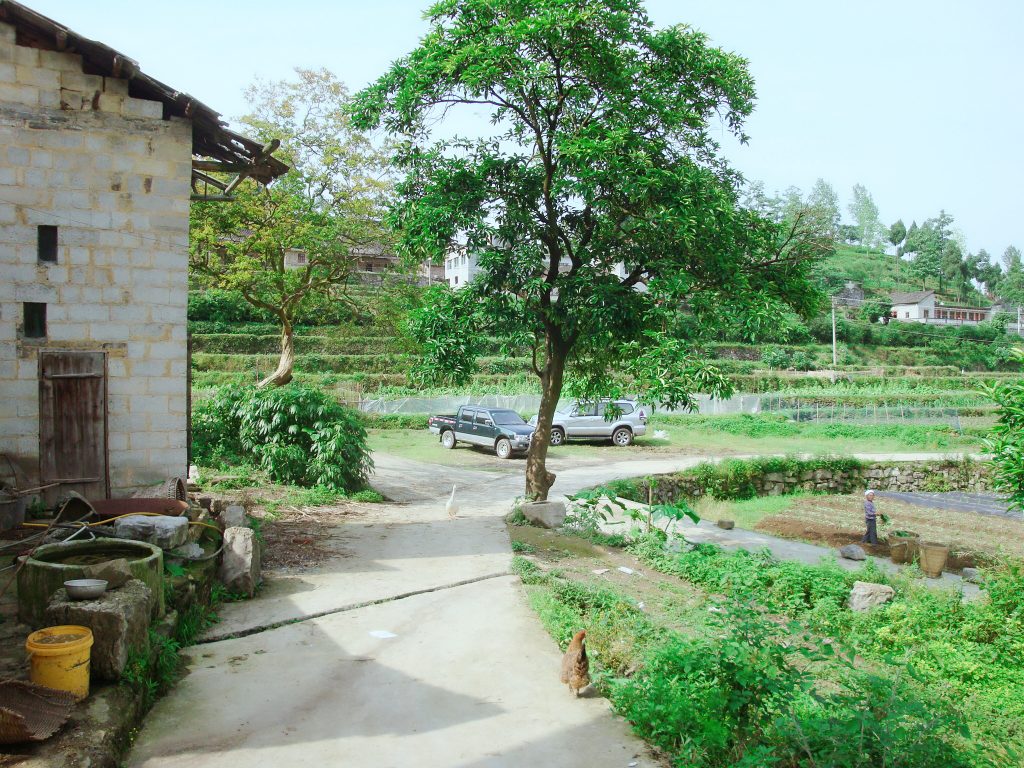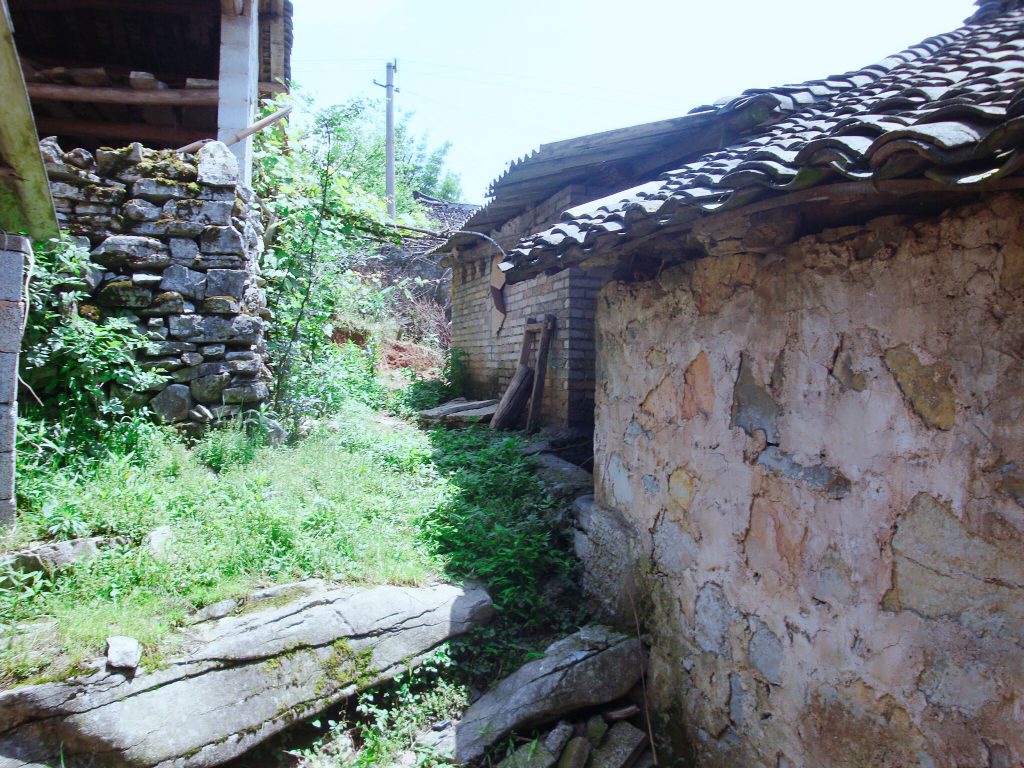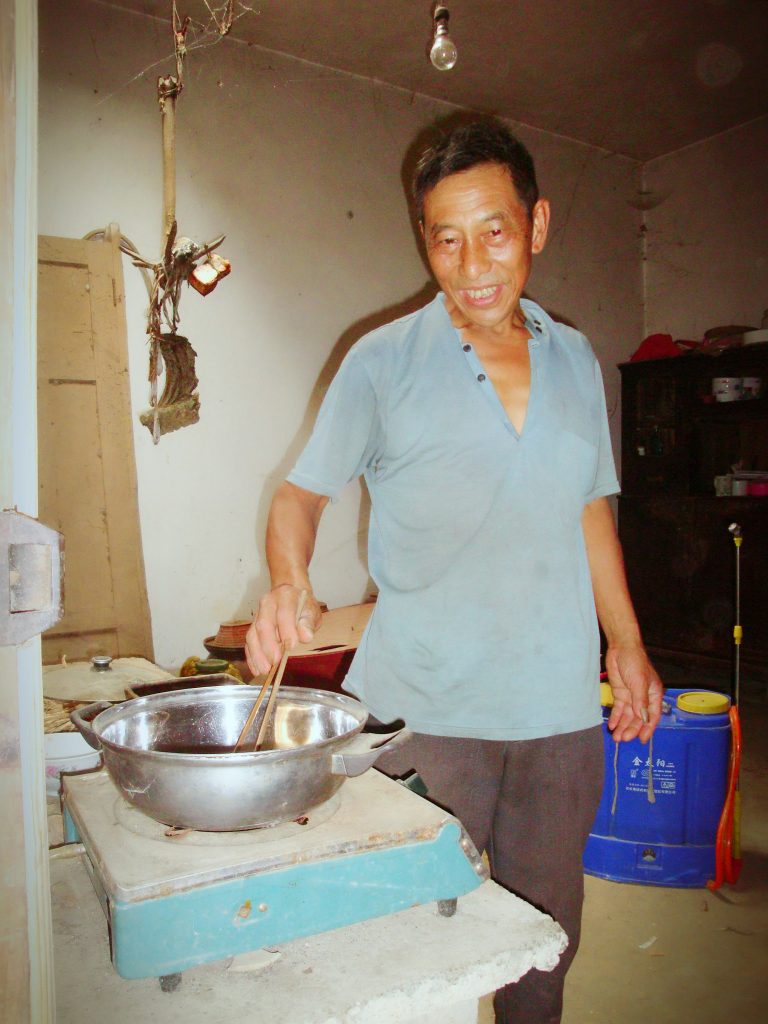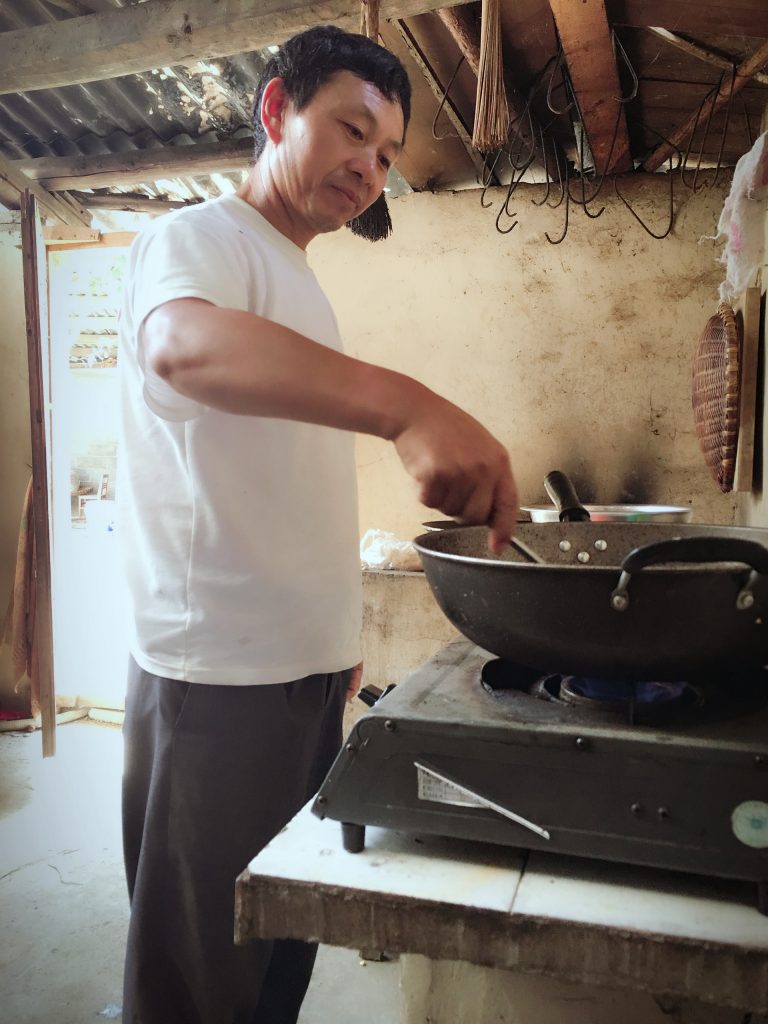We have now offset another 25,000 ton CO2eq in a Gold Standard certified project! Thank you for taking part in this!
This is our project
In the province Shuicheng in China, this project aims to help small-scale pig farmers to build methane digesters. In these digesters, organic matter (including manure and wastes) are decayed an aerobically. According to the preparatory study, there are on average 4.3 pigs in every peasant household. Therefore, and a standard biogas digester with a volume of 8m3 is constructed. This anaerobic digester can fully handle the manure of these pigs, and collects the biogas generated during the treatment process for heat supply. This meets the thermal demands of the households themselves, by using the biogas stove with rated power 2.33kW each unit. 18 934 of these methane digesters were installed, to the benefit of an equal amount of small-scale farmers and their families.
What was the situation before?
Before the project construction, all the swine manure was stored in an uncovered anaerobic mature management system (i.e. deep pit). Large amounts of methane was emitted to the atmosphere during the manure storage, due to the anaerobic condition in the deep pit. Methane is a greenhouse gas that has an impact on the climate change some 25 times worse than CO2! Moreover, according to the preparatory investigation, the householders were using coal for cooking and heating. This was also releasing CO2 into the atmosphere, and caused indoor air pollution from particulate matter (soot), which is harmful to human health.

The outcomes of the project
The project thus results in a reduction of greenhouse gas (GHG) emissions in these two ways: on the one hand, the recovery and utilization of biogas from digested slurry in the biogas digester, which reduces methane emissions that would otherwise have aroused from the deep pit storage. It prevents methane emissions by changing the management practice of manure in order to achieve the controlled anaerobic digestion, equipped with methane recovery system. Moreover, the biogas is used as thermal energy to replace the fossil fuel (coal) currently used to meet the households daily energy needs for cooking and heating. The heat generated from burning biogas effectively replace an equal amount of the heat which would otherwise be generated by a coal stove. The combined annual GHG emission reductions for both components of the project is estimated at 50,113 tCO2e annually.
The proposed project will have positive environmental and economic benefits and contribute to the local sustainable development in the following aspects:
- To recover methane and substitute the consumption of fossil energy,
- To increase employment for the local people through the construction of methane pools and the follow-up service,
- To improve the living and cooking conditions and the health of the local people,
- To popularize practical energy technology.

Read more about the project in the Gold Standard Registry
A big thanks to all of you for enabling this development!
Do you want to contribute to this, and other similar projects? Calculate your carbon footprint and start your offsetting today!


Do you have plans/more information on how to build and operate this system?
I would like to see if it is a viable solution for a project I am working on with horses.